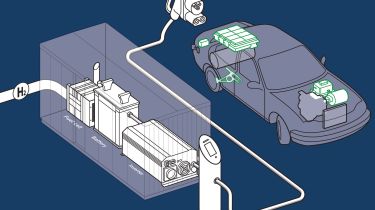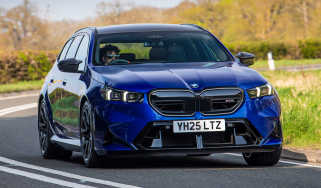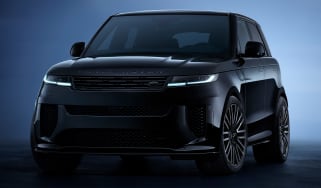UK’s AFC Energy launches CH2ARGE - world’s first hydrogen fuel cell electric car charger
Fresh take on EV charging sees hydrogen fuel cell used to replenish EV batteries; tech allows for off-grid charging

A UK firm has demonstrated what it claims is the world’s first electric vehicle (EV) charger based on hydrogen fuel cell technology.
Surrey-based AFC Energy’s CH2ARGE hydrogen-powered rapid chargers are capable of charging an average EV to 80 per cent capacity in less than an hour, all without having to tap into the National Grid.
• Best electric cars to buy now
EV owners using the CH2ARGE system would only see a conventional-looking electric car charger, with much of the tech hidden in the background. Hydrogen for the chargers would be delivered via tanker and stored at the charging station in on-site tanks, before being converted into electricity by a hydrogen fuel cell.
Electricity generated by that fuel cell is then fed into a 40kW battery, from which EV owners draw the charge for their cars. Each CH2ARGE unit comprises two EV charge points, capable of dispensing around 140 full charges before the hydrogen tank requires refilling.
AFC is currently in talks with a number of potential partners, and says it will be able to begin rolling the chargers out by the end of this year if a deal is struck soon.
The company does not currently envisage CH2ARGE as something for EV owners to have at home. The intention is for the chargers to be installed at motorway service stations, supermarkets, stadiums and other retail environments.
• Electric car charging UK: everything you need to know
AFC claims the cost of using a CH2ARGE unit will be competitive with Tesla Superchargers rates, while the off-grid nature of the hydrogen chargers frees them from the limitations implicit in current charging tech.
As well as being able to operate in remote areas, another advantage of the C2HARGE system is its ability to run on lower-purity hydrogen than is required by hydrogen fuel cell vehicles.
AFC plans to source its hydrogen from steam methane reforming and electrolysis, but will “capitalise on new technologies” related to production of the gas, as they emerge.
Adam Bond, CEO of AFC Energy, told Auto Express: “By 2030, it is estimated that there could be nine million electric vehicles on the roads of Britain, up from 90,000 today.
“For this transition, we need charging stations to be embedded throughout the country, as well as seeking innovative solutions to overcome the severe limitations of centrally generated electricity.
“By developing and demonstrating the effectiveness of our hydrogen fuel cell in the application of EV charging, AFC Energy has shown it is ready to lead the way not only in solving the challenges of increased demand for electricity, but also doing so in a truly zero-emissions approach.”
How do hydrogen fuel cells work?
Auto Express was given a run through of how the hydrogen fuel cell works by the production team leader of AFC Energy, Chris Reynolds.
"Fuel cells work by producing an electrical current through a chemical reaction," he explained. "A fuel cell has two electrodes and a conducting medium – the electrolyte – which can be liquid or solid.
"Charged particles move from one electrode to another in the medium and when the electrodes are connected by a circuit, electrons move from one electrode to the other, causing a circuit.
"In AFC’s alkaline fuel cell, the reaction that causes this process occurs when hydrogen is fed into the fuel cell and reacts with the hydroxide chemical in the electrolyte, releasing energy and electrons whilst producing water."
Do you think the fuel cell electric car charger concept will work? Join the debate in the comments...
Find a car with the experts



